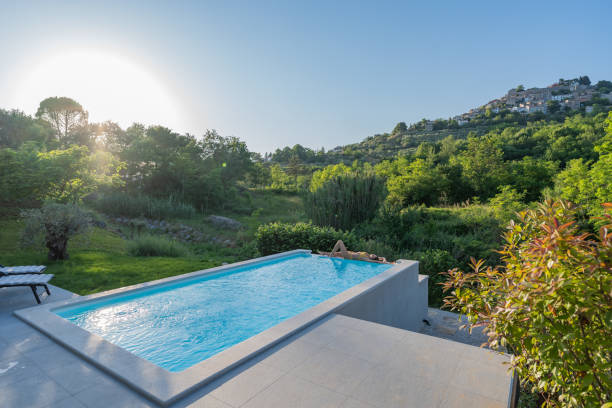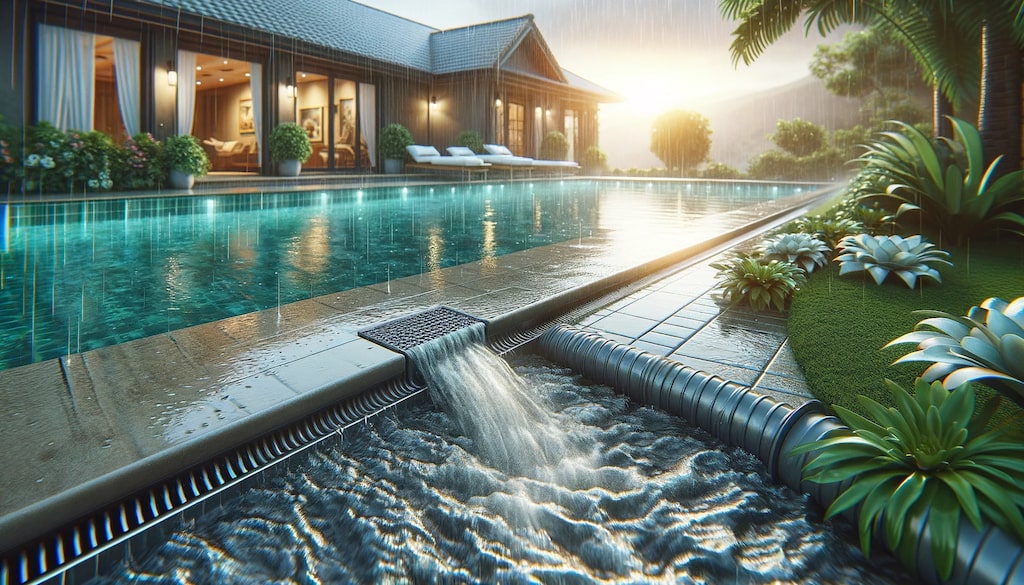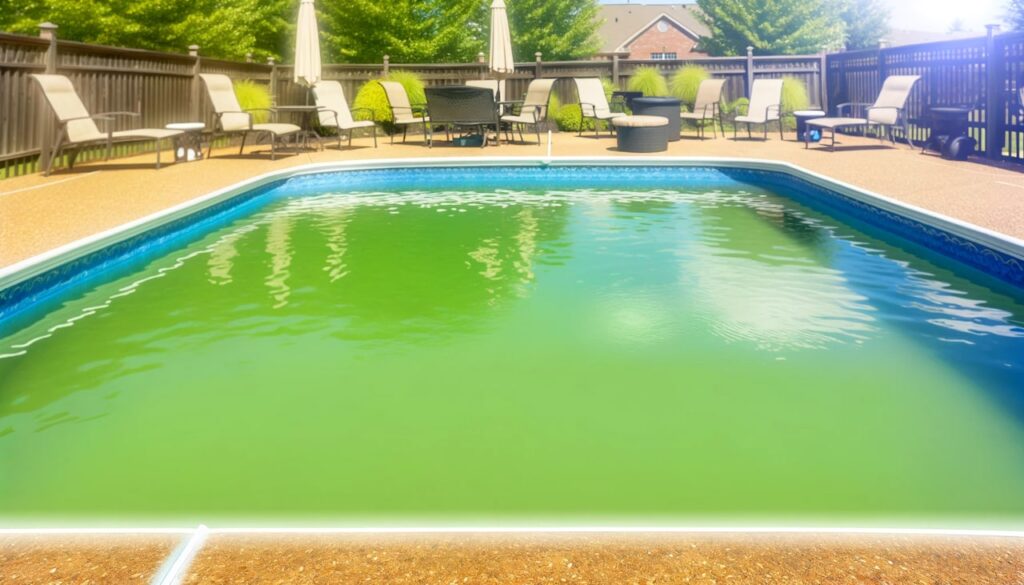Imagine a swimming pool that seems to extend endlessly into the horizon, blending seamlessly with the sky or ocean. This captivating design element has become increasingly popular in luxury resorts, private homes, and high-end hotels. But what is an infinity pool exactly, and what makes it different from a regular pool? In this blog, we’ll explore the concept of infinity pools, their unique characteristics, and how they compare to traditional pools.
You may also like this: How Does an Infinity Pool Work?
What is an Infinity Pool?
An infinity pool, also known as a vanishing edge pool, is a type of swimming pool where one or more edges are designed to appear as though the water flows over the edge into the surrounding landscape. This creates a visual effect of the pool water disappearing into the horizon or blending with a natural water feature like an ocean, river, or a scenic backdrop.
This design illusion is achieved by using a carefully constructed weir (a shallow overflow ledge) that allows the water to flow over the edge, creating the appearance of an “infinite” pool. Infinity pools are often built in elevated locations, such as hillsides or rooftops, to maximize the dramatic visual effect.
Characteristics of an Infinity Pool

Infinity pools are known for their distinctive and luxurious design. Here are some key characteristics that set them apart:
- Seamless Edge: The most striking feature of an infinity pool is its edge that blends into the surrounding environment, giving the impression that the pool has no end.
- Overflowing Water: Water flows over one or more edges of the pool into a catch basin or trough. The water is then pumped back into the pool, maintaining the water level.
- Stunning Views: Infinity pools are often built in locations with breathtaking views, such as oceanfront properties, mountainsides, or luxurious rooftops, enhancing the visual appeal.
- Architectural Design: These pools require sophisticated engineering and precise design to ensure the water overflows smoothly and evenly without compromising safety.
- Modern and Elegant Aesthetics: With their sleek, contemporary design, infinity pools add a touch of elegance to any property, making them a popular choice for high-end residences and resorts.
Infinity Pool vs. Regular Pool
While both infinity pools and regular pools provide a refreshing swimming experience, there are notable differences:
- Visual Effect: Regular pools have a defined edge, where the water stays contained within the walls of the pool. In contrast, an infinity pool creates the illusion of water flowing endlessly into the surrounding environment.
- Design and Construction: Infinity pools require specialized design and engineering to create the vanishing edge and maintain the overflow system. Regular pools are simpler in design and construction, typically requiring fewer materials and less intricate engineering.
- Cost: Infinity pools generally cost more to install due to the complexity of the design and the additional features such as the overflow system. Regular pools are usually more affordable, with fewer customizations.
- Maintenance: Both pool types require regular maintenance, but infinity pools may need more frequent checks on the overflow system, pumps, and filtration to ensure proper function.
Cost
The cost of installing an infinity pool can vary significantly depending on various factors, including location, size, materials, and design complexity. On average, an infinity pool can cost between $50,000 to $100,000 or more.
Key cost drivers include:
- Design and Engineering: Custom design and structural considerations, especially if the pool is being built on a hillside or elevated structure, can add to the price.
- Materials: High-quality materials like tile, stone, and glass are often used to create a sleek and luxurious look.
- Size and Location: Larger pools or those with challenging locations (e.g., remote areas or elevated sites) can increase costs significantly.
It’s essential to factor in ongoing maintenance and operational costs as well, as the water circulation system and filtration processes can add to the overall cost of ownership.
Conclusion
An infinity pool offers a stunning, visually appealing alternative to traditional pools, providing a serene and luxurious swimming experience that connects the pool with the natural landscape. With their seamless edge and unique design, infinity pools can transform any property into a high-end, tranquil retreat. While they may come at a higher cost, the aesthetic and visual impact they create can make the investment worthwhile for those seeking an exceptional swimming experience.
Ready to transform your property with an infinity pool? Contact a professional swimming pool contractor today to discuss your vision and get expert advice on design and installation. Let us help you create the perfect luxury pool for your home!
FAQ
Are infinity pools suitable for all locations?
While infinity pools can be built in a variety of locations, they are best suited for properties with scenic views, such as mountainsides or beachfronts, to maximize their visual effect. They can also be constructed on rooftops or in elevated areas, though this may require more engineering.
How do infinity pools work?
Infinity pools use a special overflow system where water flows over the edge into a catch basin or trough. The water is then filtered and returned to the pool, maintaining a consistent water level and creating the illusion of an endless pool.
Are infinity pools more expensive to maintain?
Infinity pools may require more frequent maintenance due to the complex overflow system and water circulation. Regular checks on the pumps and filtration system are essential to ensure proper function.
Can I build an infinity pool in my backyard?
It’s possible to build an infinity pool in a backyard, provided there is a suitable location and the necessary engineering can be done. Consulting with a professional pool designer and contractor is important to assess the feasibility of such a project.
How long does it take to install an infinity pool?
The installation of an infinity pool can take anywhere from a few months to a year, depending on the complexity of the design, location, and size of the pool. It’s crucial to work with experienced professionals to ensure the project is completed on time and within budget.



